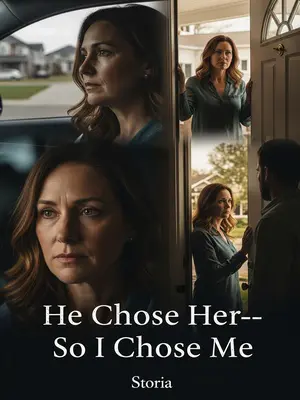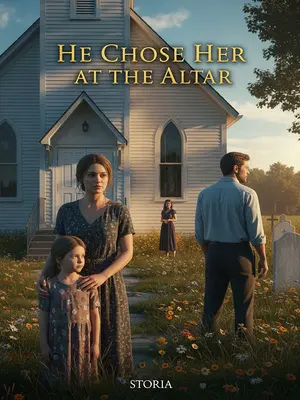Chapter 6: Moving On
After that day, I barely went out, staying home and working on my wedding dress.
The house grew quiet, filled with the hum of the sewing machine, the soft rustle of fabric, and the occasional creak of the old wooden floors. I found solace in the rhythm of needle and thread, the delicate patterns blooming beneath my fingers. It was the kind of quiet that settles deep—peaceful, but tinged with melancholy.
For generations, marriages between prominent families have always happened. Dad’s sister married into the Parker family in Cleveland—she’s technically the stepmom, but after years of hosting Thanksgiving and smoothing over family drama, everyone treats her like the real deal. If I marry in, it’s a close family tie—I won’t have trouble with my mother-in-law, and it’ll bring the Parker and Carter families even closer. All gain, no loss.
Our families had woven themselves into the fabric of Midwest society for generations—country club memberships, charity boards, Fourth of July cookouts on the lake. I knew the rules, the expectations. Marriage was more than just a union; it was a partnership, a merger, a way to keep the legacy alive. I took comfort in the predictability of it all.
The days passed quietly.
I let the routines anchor me—morning coffee on the back porch, afternoon walks with Mom, evenings spent stitching lace to tulle while Dad read the Tribune. The world kept spinning, and I found my footing, slowly, carefully.
I saw Chris and Lily again at the poetry night hosted by Mrs. Nichols, wife of the senator. The news that the Howell heir would marry his mentor’s daughter as a live-in companion had already spread all over Chicago a couple weeks ago. Lily showed up today as Chris’s fiancée. Everything about her said she was the future lady of the Howell house. The two of them together—anyone would say they made a perfect couple.
The Nichols house was alive with laughter, the scent of wine and hydrangeas, poetry books scattered on every surface. Lily wore a powder-blue dress, her hair curled just so, the perfect image of gentle refinement. Chris stood beside her, stiff as always, nodding politely to every greeting. It was the kind of scene you’d see in a magazine spread—old money, new beginnings, everyone pretending to be happy.
But for some reason, Chris didn’t look happy. His lips were pressed tight, his gaze drifting to me now and then. I avoided his eyes, sticking close to my mom as she chatted with Mrs. Nichols.
He kept glancing my way, almost as if he expected me to swoop in and rescue him from his own decisions. I made a point of listening to Mom, laughing a little too loudly at her stories about college protests and the senator’s disastrous first campaign.
Mrs. Nichols is the senator’s younger sister. Back in the day, she was called the most talented woman in the city. After her marriage, she became even more independent, always hosting poetry nights, making friends over verse, and enjoying all kinds of creative pursuits.
Her parties were legendary—never stuffy, always filled with music and lively debate. She’d once painted a mural on her dining room wall just because she was bored, and when people asked why, she’d laugh and say, “Why not?” I admired her, maybe even envied her freedom.
I heard her tell my mom that the prize for this poetry night was the original copy of Franklin Yates’s ‘Chess Master’s Manual,’ with his personal notes. I’ve loved chess since I was a kid, and though I’d only come to relax tonight, hearing that got me excited. Unfortunately, in the end, I lost by a single move to Sarah. I laughed, shaking my head, but inside, the old sting of almost-winning, almost-being-chosen, lingered.













